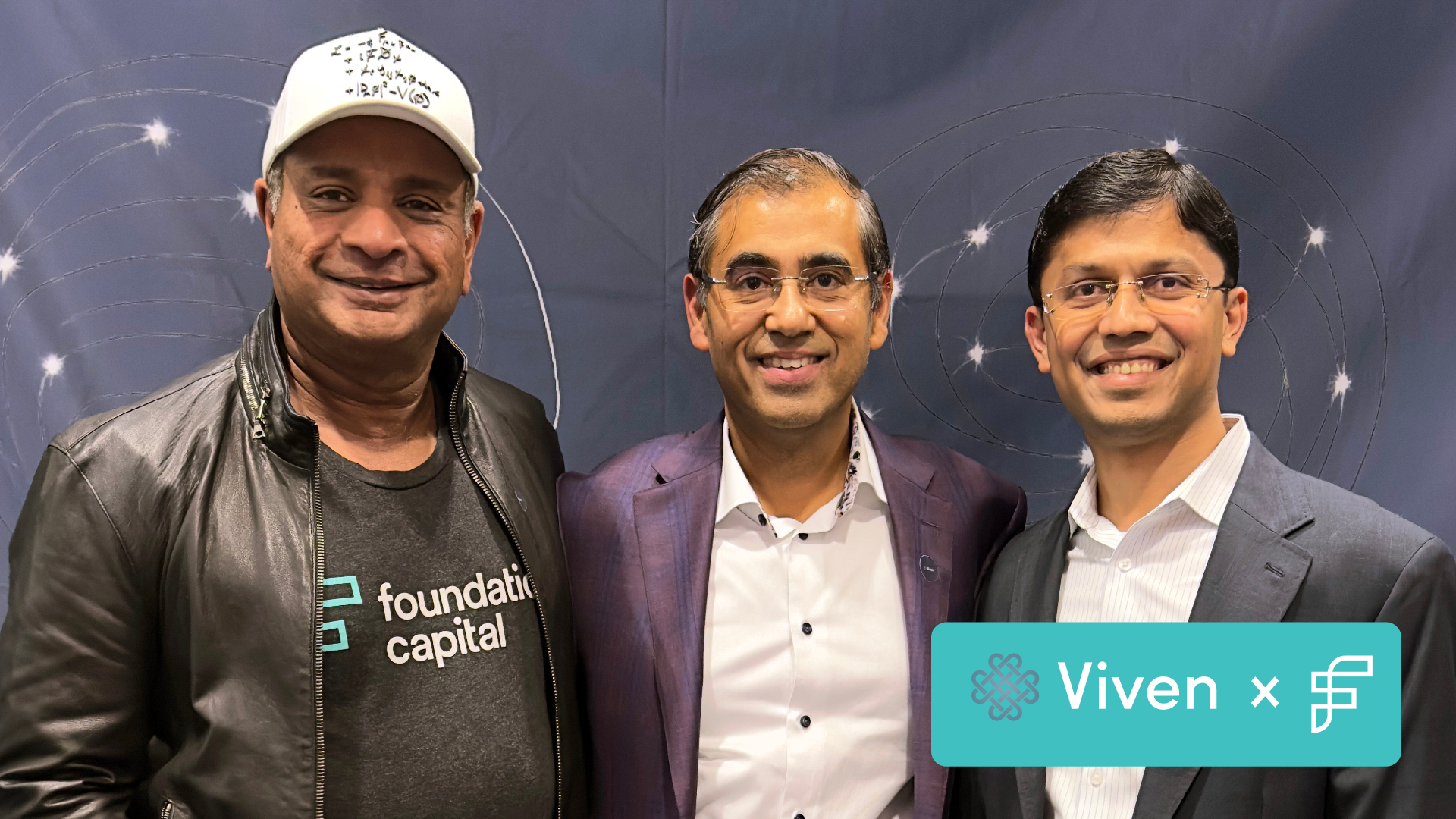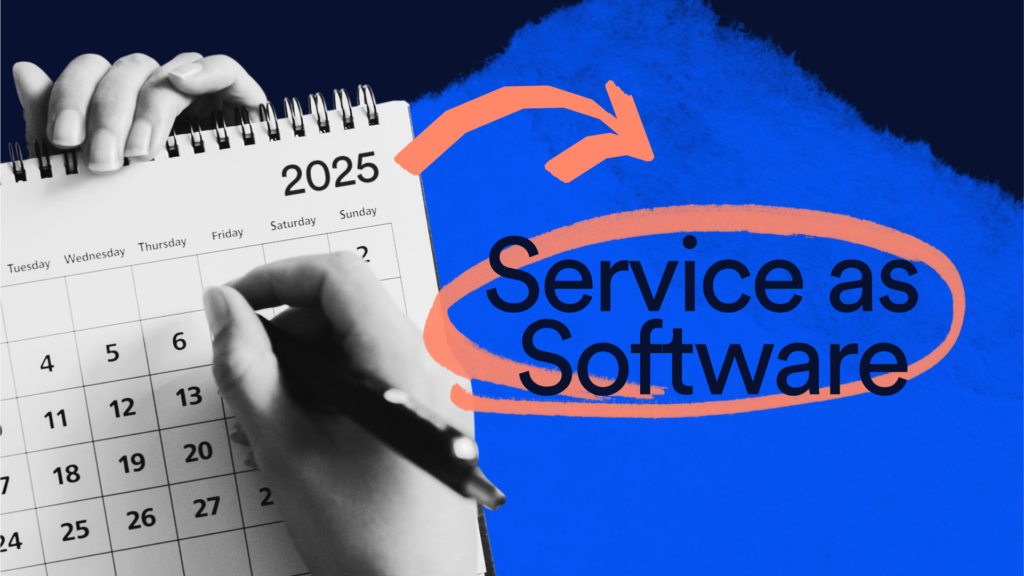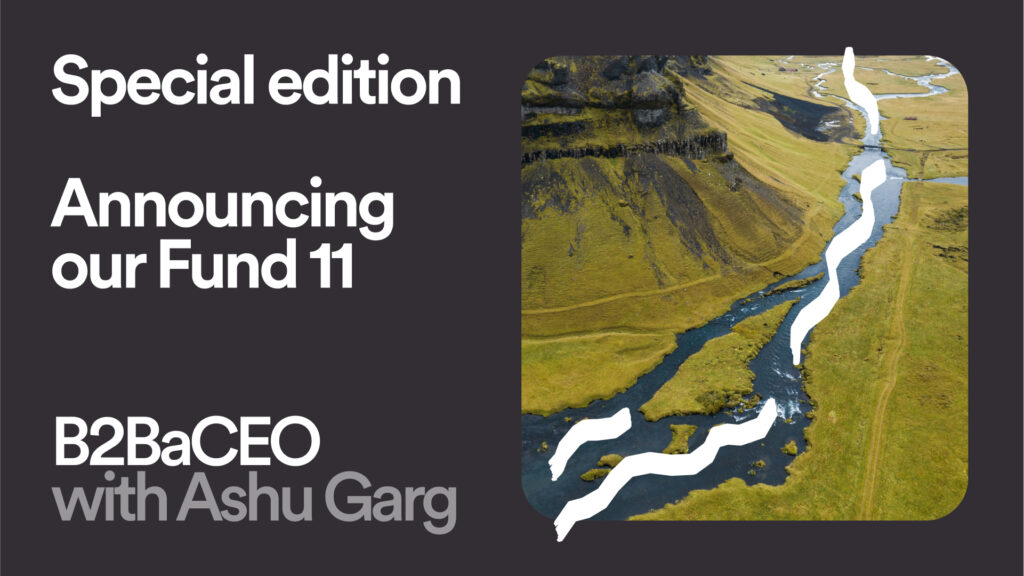Announcing our investment in Viven: A personalized AI for every employee
10.17.2025 | By: Ashu Garg

I’ve known Ashutosh Garg for nearly two decades. We share the same name (he goes by Ashu) – a coincidence that’s led to more than a few confused introductions over the years. We both went to IIT Delhi and studied engineering just a few years apart. You might say he’s my own real-life version of a digital twin – which makes what he’s building now feel especially fitting.
I was one of the earliest investors in Ashu’s second unicorn startup Eightfold, which has since grown into a multi-billion dollar talent intelligence platform that serves more than 100 Fortune 500 customers. From his Ph.D. to his early years as a research scientist at Google and his first unicorn startup, Bloomreach, Ashu has been thinking about how to apply the latest advances in AI to find, capture, and make use of human knowledge his entire career.
Eighteen months ago, Ashu and Varun Kacholia (who is also CTO at Eightfold) started brainstorming ways to distill the knowledge (not just the raw information) inside every employee’s head and make it accessible to others within their organization. Initially, the idea was to focus on departing staff as an extension of Eightfold’s mission. Soon, it broadened to include everyone at the company.
We began to explore some fundamental “what ifs”: What if we could give every employee a personalized AI model that could answer questions on their behalf? What if every employee had a way to navigate complex organizational hierarchies and get the context they need in real time? What if we could reduce the ever-increasing costs of coordination and communication that affect every organization as it grows?
Soon, Ashu, Varun, and I were hanging out almost every weekend and brainstorming, either on my whiteboard at home or during long walks. The idea kept expanding, and none of us could stop thinking about the possibilities. Those conversations grew into Viven, which emerged from stealth earlier this week.
Viven is creating a digital twin platform for the enterprise. It builds a personalized AI model for every employee that’s grounded in their day-to-day work – their emails, documents, code, chat messages, meetings, and more. Over time, the twin learns not only the data that fuels their work, but the process, patterns of thought, and context behind it.
The aim is for Viven’s personalized AIs to become the default interface for knowledge and action across every company, as ubiquitous as Slack and email are today. It’s an ambitious vision, and one that we at Foundation Capital are proud to support from the very earliest stage.
The digital twin comes of age
The concept of a “digital twin” has a long lineage. During the Apollo program, NASA built virtual replicas of spacecraft to test scenarios without risking lives. In the decades since, industries from chip design to aerospace have used digital simulations to model complex physical systems.
What stayed out of reach was a faithful digital twin of a person. Human knowledge is contextual and fluid, and until recently, it couldn’t be simulated with any real fidelity. Today’s AI models change that. More than simply retrieving facts, they model how we reason, express ourselves, and relate to others.
Viven builds on these advances. Their twins integrate with every data source an employee touches to build rich profiles of both their knowledge and their know-how – capturing not just what they know, but how they apply it in practice.
Still, for all of AI’s progress, simulating how humans communicate and collaborate is far from straightforward. Consider how every interaction we have is shaped by context: a VP of Sales will respond differently to “How’s the quarter going?” depending on whether the CEO or a board member poses the question. There’s also myriad challenges around privacy: we all have information we’d rather not share broadly, and users rightly worry about their twins being misused.
Viven’s platform tackles both challenges. It builds in what Ashu calls “pairwise context,” which allows its twins to tailor their responses based on the relationship dynamics between the different parties involved. It also provides both employees and organizations granular control over information sharing. An employee can decide, for example, that only certain colleagues or teams can access their twin for specific topics. Every interaction is logged and auditable, providing full transparency into how twins arrive at their answers. Responses are also grounded in sources and include citations, so anyone can trace a path back to the original email, doc, thread, etc.
Just as importantly, Viven designs its twins to get smarter with every interaction using RL and other fine-tuning techniques. Over time, each user’s AI twin begins to reflect that individual’s expertise, communication style, and approach to solving problems – all in the context of their specific relationships with other people.
Compounding organizational knowledge
Institutional knowledge in most organizations is like water leaking from a bucket. Some of it is written down in wikis and docs, but the most valuable insights often live only in people’s heads. Why did we architect our system this way? How did we close that major deal? What was the rationale behind last year’s strategy shift? These are the sorts of context and decision histories that vanish when an employee leaves or a team disbands.
The result is that large companies struggle to extract full value from their collective history and expertise. This challenge multiplies for companies with long-term client relationships. Take a consulting firm like McKinsey (where I started my career), which has served some of its biggest clients (say JP Morgan) for decades across hundreds of projects with thousands of consultants. Despite sizable investments in knowledge management, McKinsey’s internal understanding of JP Morgan remains fragmented across teams and walks out the door when consultants rotate off the account or leave the firm.
Imagine if Viven could create a digital twin for every McKinsey client that any associate or partner could query. Need to understand JP Morgan’s decision-making process, their unwritten preferences, or how they’ve responded to similar proposals in the past? The twin would provide nuanced answers tailored to who’s asking. Every consultant could tap into decades of accumulated wisdom. Now apply this approach to every major project and initiative within McKinsey. Imagine how this would transform both their business and the broader field of consulting.
When collective intelligence compounds, lessons don’t fade – they snowball into advantages, and the company gets smarter every quarter.
Why this team
Over the years, I’ve watched Ashu build two unicorn companies by seeing where technology was headed and moving early to build for that future. At Eightfold, he transformed talent management by reframing it as a matching problem that advanced AI could solve. Now at Viven, he’s acting on another prescient insight: today’s AI models make true human digital twins possible for the first time.
His co-founder and CTO, Varun Kacholia, brings equally world-class experience. Varun spent nearly seven years at Google helping build the core infrastructure that makes the world’s information searchable (he led engineering for search on YouTube and Google’s video content). Then at Facebook, he led the News Feed ranking team, where he built personalization at a scale for billions of users. Like Ashu, Varun is an expert at organizing information and personalizing content at scale.
Together, they’ve spent the last decade growing Eightfold into a platform that’s used across the world’s largest companies. They’ve learned what it takes to get big organizations to adopt new technology – not just buy it, but actually integrate it into their workflows. They know the difference between a compelling demo and a product that IT departments will approve and employees will use.
With their combination of technical depth and hard-won enterprise expertise, the two make the perfect founding pair for Viven.
The future of enterprise intelligence
In every organization, talented individuals solve problems, make decisions, and build relationships, yet all that wisdom is limited by their availability. Their know-how is trapped in their calendar. It can’t scale beyond the meetings they attend and the emails they answer. It disappears when they move on to another company. It’s inaccessible when they’re asleep, on vacation, or just in a different time zone.
Meanwhile, McKinsey estimates that employees spend 30% of their time on repetitive work – answering the same questions, re-explaining context, and searching for information.
Viven paints a different future: one where human expertise becomes permanent, scalable, and widely accessible within every organization. Here, work moves at the speed of thought, not the speed of meetings.
We’re thrilled to partner with Ashu and Varun from day zero as they build this next generation of enterprise intelligence.
Published on October 17, 2025
Written by Ashu Garg


